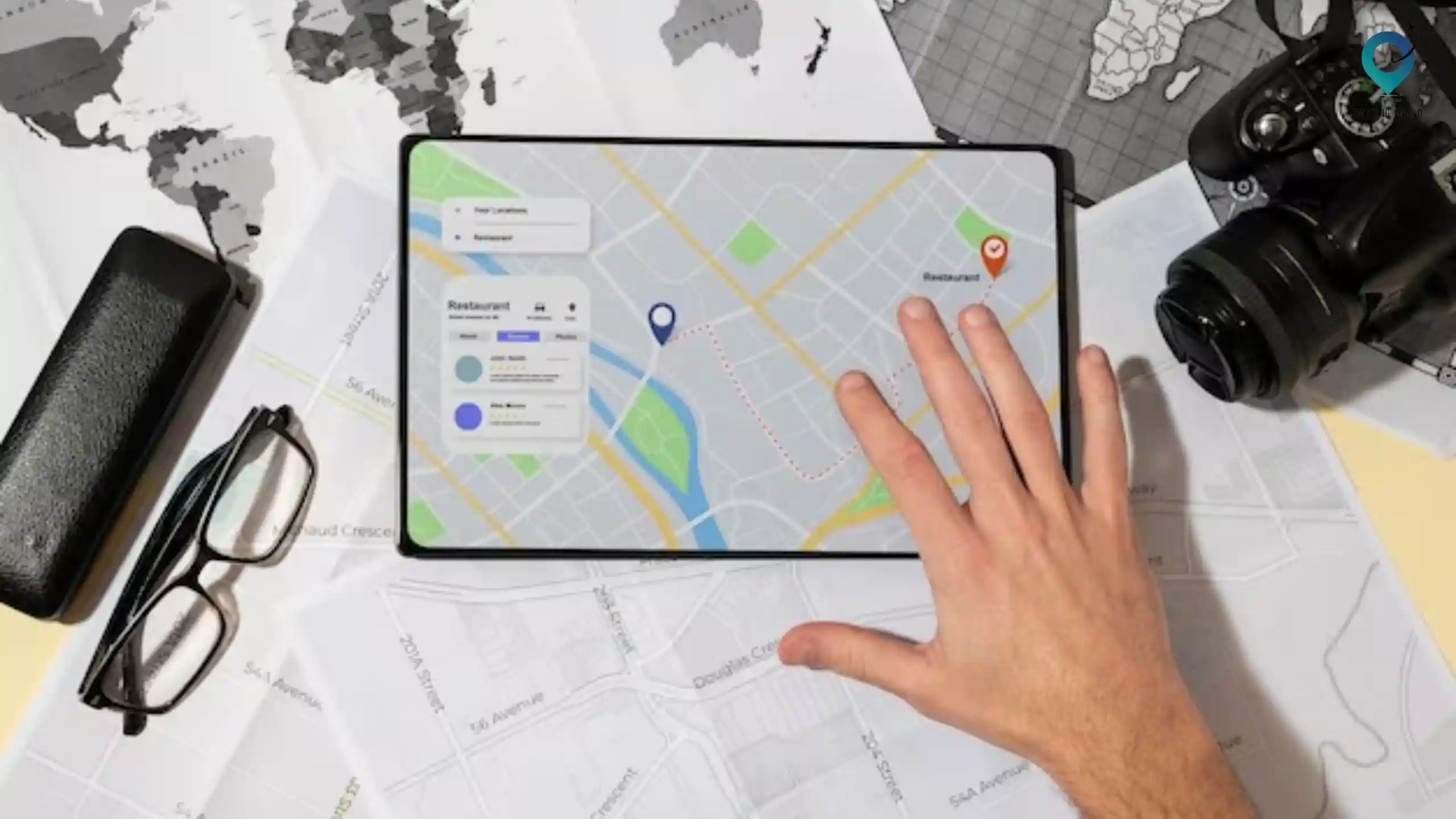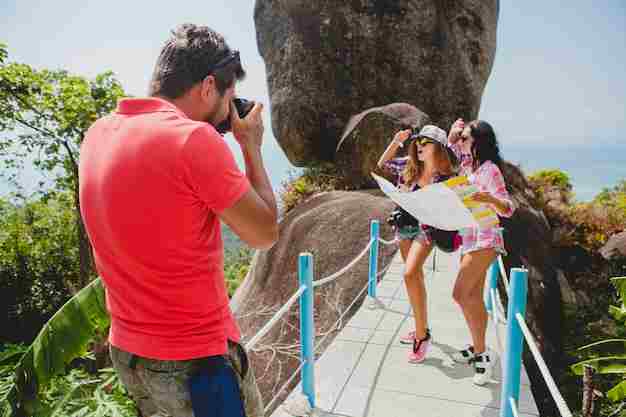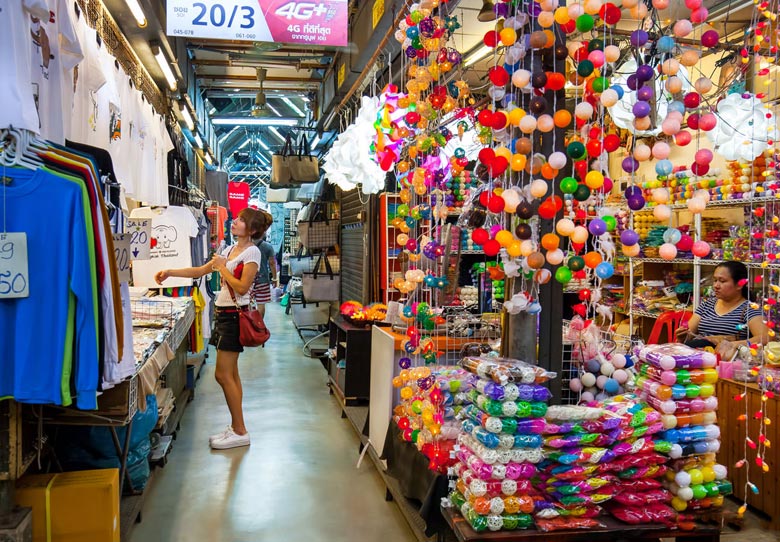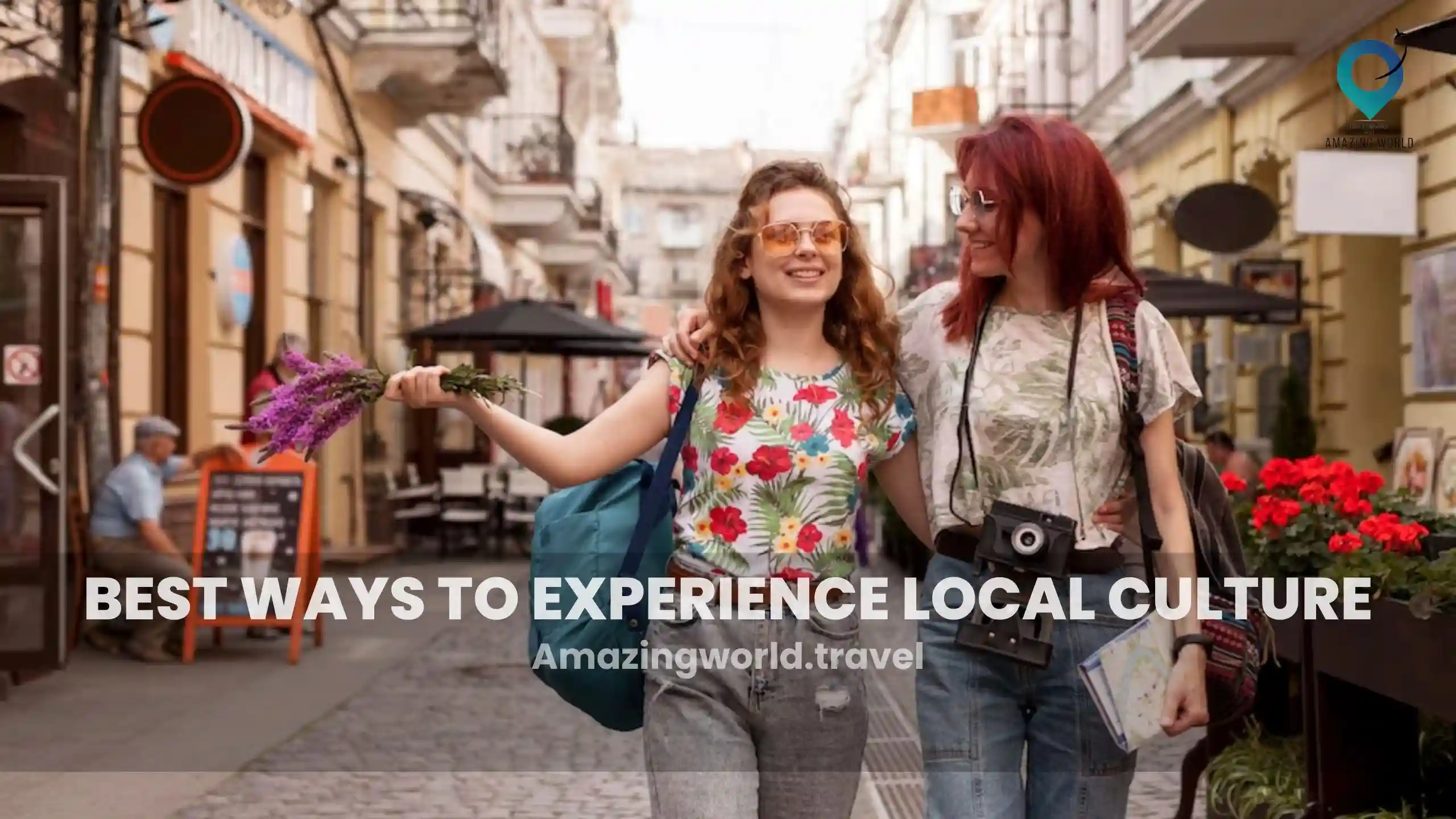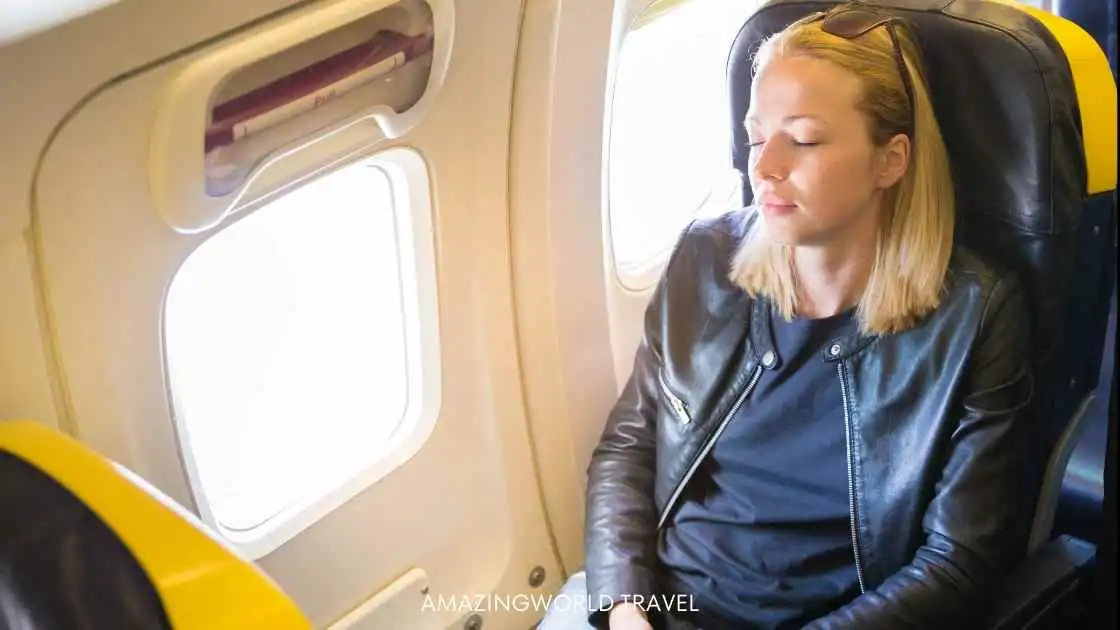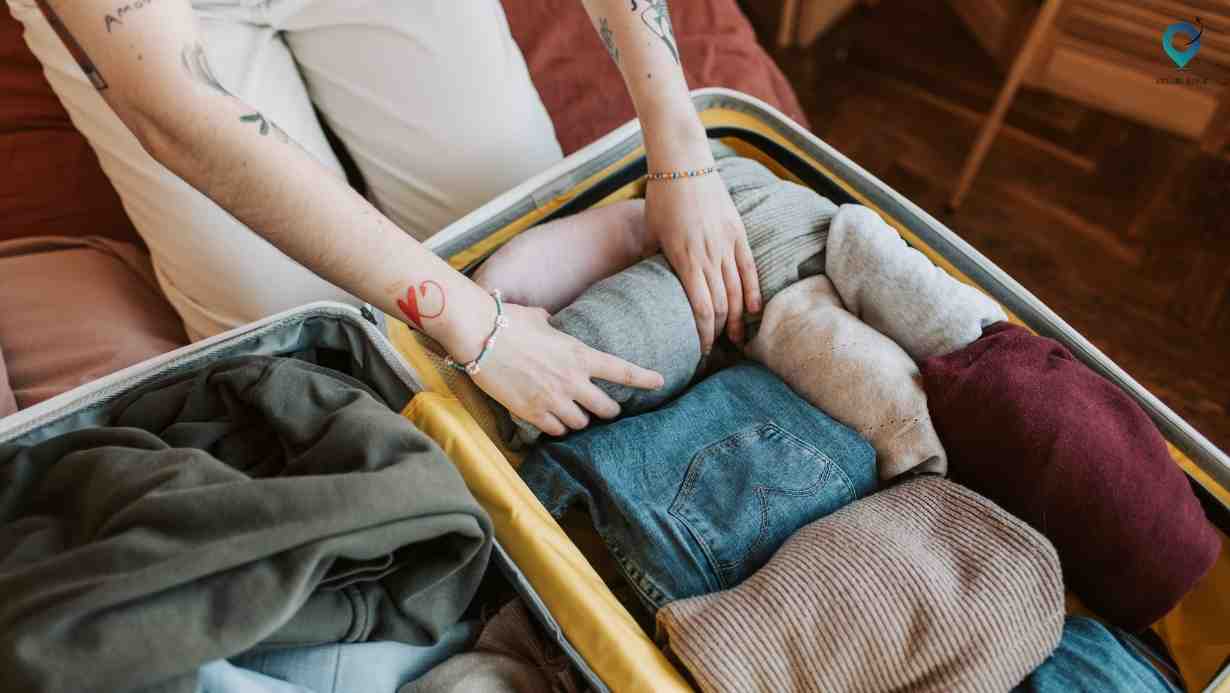Must-Read Europe Travel Guide: 15+ Essential Tips

Whether you’re searching for tips on finding unique souvenirs, staying safe, or immersing yourself in the local lifestyle, this guide covers it all. Get ready to discover the secrets of European travel and make the most of your upcoming exploration.
Also, if you are looking best hotels and Homestay deals then we recommend booking your hotels and homestay with priceline.com
Tips 1- Planning Your Trip
When embarking on a journey to Europe, planning is key to a successful and enjoyable experience. Planning encompasses several essential aspects, and here are the details for each:
Choose the Right Time to Visit
One of the most crucial decisions you’ll make when planning your European adventure is selecting the right time to visit. The timing can significantly impact your travel experience:
- Season and Weather: Europe experiences distinct seasons, with summer, spring, fall, and winter offering unique experiences. Consider your preferences and the type of activities you want to engage in. For pleasant weather and outdoor activities, summer and spring are ideal, while winter is perfect for winter sports enthusiasts.
- Festivals and Events: Research local festivals, events, and holidays that may coincide with your trip. Participating in cultural celebrations can be a highlight of your visit.
- Crowds and Prices: Peak tourist seasons often mean larger crowds and higher prices. To avoid these, consider visiting during the shoulder season or the offseason for a more budget-friendly and less crowded experience.
Set a Realistic Budget
Managing your finances is a crucial aspect of travel planning. Setting a realistic budget ensures you can fully enjoy your trip without financial stress:
- Accommodation: Allocate a portion of your budget for lodging. Consider staying in a mix of budget-friendly options, such as hostels, and more luxurious accommodations.
- Transportation: Plan for transportation expenses, including flights, train tickets, and local transportation. Look into options like Eurail passes, which can save you money on train travel.
- Daily Expenses: Estimate daily costs for food, activities, and souvenirs. Be sure to account for unexpected expenses.
- Emergency Fund: It’s wise to set aside some money for unexpected emergencies, such as medical needs or unforeseen travel changes.
- Exchange Rates: Keep an eye on exchange rates and consider exchanging some money before your trip to have local currency on hand.
Decide on Your Itinerary
Creating an itinerary is essential for maximizing your time and experiences in Europe. Here’s how to go about it:
- Research Destinations: Begin by researching the countries and cities you’d like to visit. Europe is incredibly diverse, offering a wide range of experiences, from historical sites to natural wonders.
- Prioritize Must-See Locations: Make a list of the must-see locations and attractions in each destination. Prioritize them based on your interests.
- Balance Your Itinerary: Ensure your itinerary has a balance between popular tourist spots and off-the-beaten-path destinations. This can provide a more well-rounded experience.
- Flexibility: While planning is essential, allow for some flexibility in your itinerary. Unexpected discoveries and interactions can be some of the most rewarding aspects of travel.
- Travel Time: Consider travel time between destinations. Europe’s extensive train network can make it easy to get around but plan for travel days as well.
Proper planning for your Europe trip involves choosing the right time to visit, setting a realistic budget, and carefully deciding on your itinerary. These steps will help ensure that your journey is well-organized and tailored to your preferences.
2. Tips- Travel Documents and Essentials
Ensuring you have the necessary travel documents and essential items in your possession is vital for a smooth and worry-free European adventure. Here’s a detailed look at each point:
Passport and Visa Requirements
- Passport Validity: First and foremost, check the expiration date on your passport. Ensure it is valid for at least six months beyond your planned return date. Many European countries require this validity.
- Visa Requirements: Research the visa requirements for the countries you plan to visit. Depending on your nationality and the duration of your stay, you may need a tourist visa. Make sure to apply well in advance if required.
- Visa-Free Travel: Many European countries are part of the Schengen Area, allowing for visa-free travel within the area for up to 90 days. Ensure you understand the rules and limitations of this agreement.
- Visa Application Process: If you need a visa, understand the application process, required documents, and processing times. Consulates or embassies can provide the necessary information.
Travel Insurance
- Importance of Travel Insurance: Travel insurance is a must for any international trip. It provides financial protection in case of unexpected events, such as trip cancellations, medical emergencies, lost luggage, and more.
- Coverage Options: Look for a comprehensive travel insurance policy that covers medical expenses, trip cancellations, and other potential mishaps. Ensure it includes coverage for the duration and activities of your trip.
- Read the Fine Print: Before purchasing travel insurance, carefully read and understand the policy’s terms and conditions. Pay attention to exclusions, deductibles, and coverage limits.
- Emergency Contact Information: Keep a copy of your travel insurance policy and emergency contact information with you at all times. You’ll need these details in case of an emergency.
Packing Essentials
- Weather-Appropriate Clothing: Pack clothing suitable for the weather during your visit. Layers work well, allowing you to adapt to changing conditions.
- Comfortable Shoes: You’ll be doing a lot of walking and exploring, so comfortable, durable shoes are a must. Consider waterproof options, especially for rainy seasons.
- Adapters and Converters: Europe often uses different plug types and voltage. Bring the necessary adapters and voltage converters to charge your electronic devices.
- Medications and Prescriptions: If you have any prescription medications, bring an adequate supply, along with a copy of your prescriptions. Also, include a basic first aid kit.
- Travel-Sized Toiletries: Instead of large bottles, opt for travel-sized toiletries to save space and comply with carry-on regulations for flights.
- Travel Locks: Keep your belongings secure by using travel locks for your luggage. They’re particularly useful in hostels and shared accommodations.
- Travel Documents Organizer: Invest in a travel documents organizer or a zippered pouch to keep your passport, tickets, itinerary, and other important documents organized and easily accessible.
- Local Currency: Carry a small amount of local currency for initial expenses upon arrival, such as transportation from the airport.
Attention to passport and visa requirements, securing comprehensive travel insurance, and packing essential items tailored to the weather and your travel needs are fundamental to a successful and hassle-free European journey. These steps help ensure you’re prepared for the unexpected and make the most of your adventure.
3. Tips – Accommodation
Choosing the right accommodation during your European trip can significantly impact your comfort, budget, and overall travel experience. Here’s a detailed breakdown of the key points:
Booking Accommodations in Advance
- Early Booking Advantages: Booking your accommodations well in advance offers several advantages. You can secure the best rates and ensure availability during peak tourist seasons.
- Accommodation Types: Depending on your preferences and budget, consider various accommodation types, including hotels, hostels, bed and breakfasts, vacation rentals, and guesthouses.
- Cancellation Policies: Pay attention to the cancellation policies of your chosen accommodation. Some offer flexible cancellation options, which can be valuable in case your plans change.
- Location Matters: Research the location of your accommodation. It should be conveniently situated, whether in the heart of the city, near public transportation, or in a peaceful area, depending on your needs.
- Amenities and Services: Different accommodations offer varying amenities and services. Check what’s included, such as Wi-Fi, breakfast, and parking, to ensure they meet your requirements.
Exploring Alternative Accommodation Options
- Hostels: Hostels are budget-friendly and offer a social atmosphere, making them ideal for solo travelers or those looking to meet fellow adventurers.
- Bed and Breakfasts (B&Bs): B&Bs provide a cozy and personalized experience with a homey feel. They are often located in residential neighbourhoods.
- Vacation Rentals: Renting an apartment or house can be an excellent choice for families or larger groups, as it offers more space and the ability to cook your meals.
- Guesthouses: Guesthouses are smaller, family-run accommodations, which can provide a warm and welcoming atmosphere. They often offer a taste of local culture.
- Camping and Glamping: If you’re an outdoor enthusiast, consider camping or glamping options, especially in Europe’s beautiful natural areas.
Reading Reviews and Doing Research
- Online Reviews: Before making a reservation, read online reviews on websites like TripAdvisor, Booking.com, and Airbnb. These reviews provide insights from previous guests regarding the quality of accommodations.
- Travel Forums: Participate in travel forums and communities where you can ask questions and seek recommendations from fellow travelers who have visited the same destinations.
- Local Insights: Reach out to locals or expats in the area through social media or local forums. They can offer valuable advice on where to stay for an authentic experience.
- Safety and Cleanliness: Safety and cleanliness should be a top priority. Ensure that the accommodation you choose meets your hygiene and security standards.
- Cost and Value: Consider the overall value. Sometimes, a slightly higher-priced accommodation with excellent amenities and location can save you time and money on transportation and dining.
When it comes to accommodation during your European travels, booking in advance, exploring alternative options, and conducting thorough research are essential steps. These actions will help you find a comfortable and convenient place to stay that aligns with your preferences and budget.
4. Tips – Transportation
Getting around in Europe efficiently and cost-effectively is crucial for maximizing your travel experience. Here’s a detailed breakdown of the key points related to transportation:
Getting Around Within Europe
- Transportation Modes: Europe offers a wide range of transportation options, including trains, buses, trams, subways, ferries, and more. Consider the most suitable mode for your itinerary and budget.
- Train Travel: Trains are a popular choice for traveling between European cities. They offer convenience, scenic views, and frequent connections. High-speed trains like the Eurostar and TGV make long-distance travel faster.
- Budget Airlines: Europe has several budget airlines that can provide affordable options for flying between countries and regions. Keep an eye on fare deals and promotions.
- Renting a Car: If you plan to explore rural areas or regions with limited public transportation, renting a car can be an option. Familiarize yourself with local traffic rules and parking regulations.
- Ridesharing: Apps like Uber and local ridesharing services are available in many European cities, offering a convenient way to get around, especially in areas with limited public transportation.
Eurail Pass and Other Transportation Cards
- Eurail Pass: The Eurail Pass is a convenient option for travelers looking to explore multiple European countries by train. It offers flexibility and cost savings, allowing unlimited train travel within a specific time frame.
- Regional Passes: Consider regional transportation passes that provide unlimited travel within specific areas or countries. These passes can be more budget-friendly and cater to your travel plans.
- City Transportation Cards: Many European cities offer transportation cards that grant access to buses, trams, subways, and sometimes even discounts on attractions. These cards are a cost-effective way to explore urban areas.
- Validity and Restrictions: When purchasing transportation cards, understand their validity periods, usage restrictions, and the types of transportation they cover.
Using Public Transportation
- Local Transportation: Public transportation in European cities is typically efficient and well-connected. Trams, buses, and subways can take you to major attractions, so familiarize yourself with local routes and schedules.
- Ticketing and Payment: Cities may use various ticketing systems, including single tickets, day passes, and reloadable cards. Opt for the most convenient and cost-effective option for your stay.
- Navigation Apps: Utilize navigation apps like Google Maps or city-specific apps to plan routes, check timetables, and estimate travel times. They can be invaluable for navigating public transportation.
- Peak and Off-Peak Times: Consider traveling during off-peak hours to avoid crowded public transportation and potentially save on fares.
- Safety Precautions: Be mindful of your belongings on public transportation, as pickpocketing can be an issue in some European cities. Keep your valuables secure.
Understanding the various transportation options, including trains, budget airlines, and local transportation, is vital for efficient travel within Europe. Consider transportation passes and cards that align with your itinerary and explore the local public transportation systems to make the most of your time on the continent
5. Tips – Safety and Health
Ensuring your safety and well-being during your European travels is of utmost importance. Here are detailed tips on safety and health:
Staying Safe While Traveling
- Awareness: Stay aware of your surroundings at all times. Be cautious in crowded areas, especially around tourist hotspots, as they can be prime targets for pickpockets.
- Document Safety: Keep your travel documents, such as your passport and visa, in a secure location. Consider making digital copies and storing them in a cloud service for easy access.
- Emergency Contacts: Save important local emergency numbers, the contact information for your embassy or consulate, and your travel insurance details in your phone and on paper.
- Travel Insurance: Travel insurance, as mentioned earlier, is essential. It can help cover medical emergencies, trip cancellations, and unexpected events that may arise during your trip.
- Local Advice: Ask locals or your accommodation staff for safety tips and advice about which areas to avoid, particularly during the night.
Health Precautions and Vaccinations
- Vaccinations: Research the specific vaccination requirements and recommendations for the countries you plan to visit. Some vaccinations, such as for hepatitis or tick-borne diseases, may be necessary.
- Prescriptions: If you take prescription medications, ensure you have an adequate supply for your trip. Carry your medications in their original packaging with a copy of the prescription.
- Health Insurance: Confirm that your regular health insurance covers international travel. If not, consider purchasing additional travel health insurance.
- Traveler’s Diarrhea: To prevent traveler’s diarrhea, practice safe eating and drinking habits. Drink bottled or purified water, and be cautious when consuming street food.
- First Aid Knowledge: Basic first aid knowledge can be valuable. Learn how to treat minor injuries and illnesses, and carry a small first aid kit.
Traveler’s First Aid Kit
- Essential Supplies: Your first aid kit should include adhesive bandages, antiseptic wipes, pain relievers, antihistamines, tweezers, scissors, and any personal medications or medical supplies.
- Local Health Care: Familiarize yourself with the local healthcare system and the locations of hospitals, clinics, and pharmacies in the areas you plan to visit.
- Travel Insurance Coverage: Confirm that your travel insurance covers medical emergencies, as this can save you from unexpected medical expenses.
Tips 6. Cultural Etiquette
Respecting the local culture and customs is essential for building positive relationships with the people you encounter during your European travels. Here’s a detailed look at cultural etiquette:
Understanding Local Customs
- Dress Code: Dress appropriately for the culture and location you’re visiting. In some places, modest attire is expected when entering religious sites.
- Greetings: Learn and use common greetings and salutations in the local language. A simple “hello” or “thank you” in the native tongue can go a long way.
- Cultural Sensitivity: Research the cultural norms and values of the countries you plan to visit. Understand the do’s and don’ts to avoid unintentional disrespect.
- Photography: Ask for permission before taking photos of people, particularly in more intimate or private settings. Some cultures may consider it invasive.
Language Tips
- Basic Phrases: Learning a few basic phrases in the local language, such as “hello,” “please,” and “thank you,” can demonstrate your respect for the local culture.
- Translation Apps: Use translation apps or phrasebooks to bridge language barriers. These tools can help you communicate effectively and show your effort to connect with locals.
- Non-Verbal Communication: Be aware of non-verbal cues and body language. Some gestures that are innocent in your culture may carry a different meaning elsewhere.
Respectful Behavior
- Public Behavior: Be mindful of your behavior in public spaces. Avoid loud and disruptive activities, and respect designated quiet zones, if applicable.
- Religious Sites: When visiting religious sites, follow any dress code and behavioral rules. Show reverence, and don’t disturb worshippers.
- Tipping Customs: Understand the tipping customs in each country you visit. In some places, tipping is expected, while in others, it may be considered rude.
- Eating Etiquette: Familiarize yourself with the local dining customs. Learn how to use utensils, eat with your hands, or follow specific table manners.
7. Tips – Money Matters
Managing your finances while traveling in Europe is crucial to ensure a smooth and enjoyable experience. Here’s a detailed breakdown of tips related to money matters:
Currency Exchange
- Currency Research: Before your trip, research the local currencies of the countries you’ll be visiting. Familiarize yourself with exchange rates to get an idea of how much your home currency is worth in the local currency.
- Exchange Options: You can exchange currency at banks, exchange offices, or even ATMs. Compare rates and fees at different places to get the best value for your money.
- Notify Your Bank: If you plan to use your credit or debit cards abroad, notify your bank about your travel plans to prevent any unexpected issues with card transactions.
- Emergency Cash: Keep a small amount of local currency as emergency cash for unexpected situations, like arriving in a place with no functioning ATMs.
Budgeting and Managing Expenses
- Daily Budget: Set a daily budget for your trip, including accommodation, food, transportation, and activities. This helps you keep track of your spending and avoid overspending.
- Apps and Budgeting Tools: Use budgeting apps or tools to monitor your expenses in real-time. These apps can provide a clear picture of your financial situation while traveling.
- Prepaid Travel Cards: Prepaid travel cards can be a secure and convenient way to manage your expenses. They allow you to load a specific amount of money onto the card and use it like a debit or credit card.
- ATM Fees: Be aware of ATM withdrawal fees, both from your home bank and the local bank. Plan to withdraw larger sums less frequently to minimize these fees.
Avoiding Tourist Traps
- Research Prices: Before purchasing anything or dining at a restaurant, research prices to ensure you’re not overpaying due to tourist markups. Read reviews and ask locals for recommendations.
- Eat Like a Local: Eating at local, non-touristy restaurants can save you money and provide a more authentic culinary experience.
- Avoid Street Scams: Be cautious of street scams and overly aggressive street vendors. Keep your belongings secure, and don’t engage with individuals who appear overly persistent.
- Ticket Prices: Research the prices of admission tickets for attractions and museums. Some places offer discounts for students, and seniors, or during specific times.
Tips 8. Sightseeing and Activities
Exploring the attractions and activities in Europe is a significant part of your travel experience. Here’s a detailed look at tips related to sightseeing and activities:
Must-See Landmarks and Attractions
- Create a List: Identify the must-see landmarks and attractions in each destination you visit. Research their opening hours and any entrance fees.
- Time Management: Plan your days to efficiently visit multiple attractions in the same area. Prioritize and make use of early morning or late afternoon to avoid crowds.
- Skip-the-Line Tickets: Consider purchasing skip-the-line tickets for popular attractions to save time and avoid long queues.
Hidden Gems and Off-the-Beaten-Path Adventures
- Local Recommendations: Ask locals and fellow travelers for recommendations on hidden gems and lesser-known attractions. These can provide unique and less crowded experiences.
- Exploration: Set aside time for spontaneous exploration. Stroll through neighborhoods, visit local markets, and immerse yourself in the everyday life of the city.
- Hiking and Nature: If you’re an outdoor enthusiast, seek out hiking trails and natural wonders that are off the beaten path. Europe offers stunning natural beauty.
Booking Tours and Tickets in Advance
- Online Booking: Many attractions and tours allow you to book tickets and tours online. Booking in advance can save you time and ensure availability, especially during peak tourist seasons.
- Guided Tours: Guided tours can provide valuable insights and a more in-depth understanding of the history and significance of landmarks. Consider joining guided tours for specific attractions.
- Combination Tickets: Some attractions offer combination tickets that provide access to multiple sites. These can be cost-effective if you plan to visit several places in the same area.
9. Tips – Food and Dining
Exploring the local cuisine and dining options is an integral part of any trip to Europe. Here’s a detailed breakdown of tips related to food and dining:
Trying Local Cuisine
- Local Dishes: One of the joys of travel is trying local dishes. Seek out restaurants and street food vendors that offer traditional cuisine specific to the region you’re visiting.
- Market Visits: Visit local markets to sample fresh produce and interact with vendors. You can often find unique, artisanal products and snacks at these markets.
- Food Tours: Consider joining food tours or cooking classes to immerse yourself in the local culinary scene and learn about traditional recipes.
- Be Adventurous: Don’t be afraid to try new foods and flavors. Be open to local delicacies and regional specialties, even if they’re outside your comfort zone.
Budget-Friendly Dining Options
- Street Food: Street food vendors often offer delicious and affordable options. You can enjoy local flavors without breaking the bank.
- Local Cafes: Local cafes and bakeries are budget-friendly places to enjoy pastries, coffee, and light meals. They also provide opportunities to engage with locals.
- Picnics: Consider having picnics in parks or scenic spots. Purchase fresh ingredients from markets and enjoy a meal with a view.
- Lunch Specials: Many restaurants offer discounted lunch menus, making it an economical way to experience local cuisine at a sit-down restaurant.
Dietary Preferences and Allergies
- Translation Cards: If you have dietary restrictions or food allergies, carry translation cards in the local language to communicate your specific requirements when dining out.
- Research Restaurants: Research restaurants in advance that cater to your dietary preferences. Many cities have vegetarian, vegan, and gluten-free options.
- Allergen Awareness: Inform restaurant staff about your allergies or dietary restrictions. They can often recommend safe dishes or make accommodations for your needs.
- Learn Local Phrases: Learn basic food-related phrases in the local language to ask about ingredients and preparation methods.
Tips- 10. Technology and Communication
Staying connected and utilizing technology effectively during your European travels can enhance your experience. Here’s a detailed look at tips related to technology and communication:
Staying Connected Abroad
- Mobile Plans: Check with your mobile provider for international roaming plans. Consider purchasing a local SIM card or a prepaid international SIM card for cost-effective data and calling options.
- Portable Wi-Fi Devices: Rent or purchase portable Wi-Fi devices (pocket Wi-Fi) to have a reliable internet connection throughout your trip. This is particularly useful for travelers who rely on constant connectivity.
- Free Wi-Fi: Take advantage of free Wi-Fi hotspots in cafes, hotels, and public areas. Many cities offer city-wide Wi-Fi networks.
Useful Travel Apps
- Navigation Apps: Download navigation apps like Google Maps, which can provide directions, public transportation information, and offline maps for use without an internet connection.
- Translation Apps: Language translation apps like Google Translate can help you communicate with locals and understand signage and menus in foreign languages.
- Currency Converter Apps: Currency converter apps allow you to quickly check exchange rates and convert prices into your home currency.
- Travel Guides: Install travel guide apps or download digital guidebooks to access information about attractions, dining, and local tips.
Keeping Your Devices Secure
- Data Security: Ensure your devices are secure by using strong passwords or biometric authentication. Enable remote tracking and data wiping features in case your device is lost or stolen.
- Public Wi-Fi: Exercise caution when connecting to public Wi-Fi networks. Avoid conducting sensitive transactions or accessing confidential information on unsecured networks.
- Backup Data: Regularly back up your devices to prevent data loss. Store important travel documents, photos, and information in a secure cloud storage service.
- Protect Against Theft: Keep your devices secure while traveling by using anti-theft bags, locks, and being mindful of your surroundings, especially in crowded areas.
Tips 11. Shopping and Souvenirs
Shopping for souvenirs can be a delightful part of your European adventure. Here are detailed tips on shopping and souvenirs:
Finding Unique Souvenirs
- Local Markets: Explore local markets, such as flea markets and artisan fairs, to discover unique handmade crafts, jewelry, and artworks that capture the essence of the region.
- Specialty Shops: Seek out specialty shops that offer authentic and locally-made souvenirs. These shops often have items that reflect the local culture and traditions.
- Support Local Artisans: Purchase souvenirs directly from local artisans or artists, if possible. This not only ensures you get a one-of-a-kind item but also supports the local economy.
- Edible Souvenirs: Consider edible souvenirs like local cheeses, chocolates, wines, or spices, which make for delightful gifts and mementos of your journey.
Bargaining and Haggling Tips
- Know the Local Custom: In some countries, bargaining is a common practice, while in others, it may be considered rude. Research the local customs and adapt your approach accordingly.
- Politeness is Key: When bargaining, be polite and respectful. It’s a negotiation, not a confrontation. Start with a friendly tone and a reasonable counteroffer.
- Research Prices: Before bargaining, research the average price of the item you want to buy. Knowing the fair market value will help you make a reasonable offer.
- Walk Away if Necessary: Don’t be afraid to walk away if the price doesn’t meet your expectations. Often, the seller will call you back with a better offer.
Import Restrictions
- Prohibited Items: Be aware of import restrictions and the items that are prohibited from being brought into your home country. Items like certain foods, plants, and wildlife products may be subject to restrictions.
- Customs Declarations: When returning home, accurately declare the items you purchased abroad. Failure to declare items or providing false information can result in fines and confiscations.
- Check Your Country’s Regulations: Research your home country’s customs regulations to understand what is allowed and what isn’t. Many countries have detailed guidelines on their official websites.
Tips 12. Environmental Responsibility
Being environmentally responsible while traveling is essential for sustainable and ethical tourism. Here are detailed tips on environmental responsibility:
Eco-Friendly Travel Practices
- Reduce Plastic Usage: Carry a reusable water bottle, reusable shopping bags, and a reusable straw to minimize single-use plastic waste.
- Public Transportation: Use public transportation or walk when possible to reduce carbon emissions. Opt for electric or hybrid rental cars if necessary.
- Support Green Accommodations: Choose eco-friendly accommodations that have implemented sustainable practices, such as energy conservation and waste reduction.
- Leave No Trace: Practice the “Leave No Trace” principles when exploring natural environments. Leave nature as you found it, without litter or damage.
Reducing Your Carbon Footprint
- Carpooling: If you rent a car, consider carpooling with other travelers to reduce the number of vehicles on the road.
- Offset Carbon Emissions: Some organizations offer carbon offset programs where you can donate to environmentally friendly projects to counteract the carbon emissions of your trip.
- Eco-Tours: Opt for eco-friendly tours and activities that prioritize responsible and sustainable tourism practices.
Respecting Natural Environments
- Stay on Marked Trails: When hiking or exploring natural areas, stay on designated paths to protect fragile ecosystems and prevent soil erosion.
- No Littering: Dispose of trash properly and use designated trash bins. If there are none, carry your trash with you until you find a suitable disposal site.
- Wildlife Interaction: Avoid disturbing wildlife, and never feed or approach animals. Maintain a safe distance and observe animals in their natural habitat without causing stress or harm.
Tips 13. Emergency Contacts and Resources
Being prepared for emergencies and knowing how to access assistance when needed is essential for a safe and secure travel experience. Here are detailed tips on emergency contacts and resources:
Knowing How to Reach Your Embassy
- Embassy or Consulate Location: Before traveling, locate the nearest embassy or consulate of your home country in the destinations you plan to visit. Keep their address, phone number, and emergency contact information readily accessible.
- Register with Your Embassy: Many embassies offer services to register your travel plans. Registering with your embassy can make it easier for them to assist you in case of emergencies, natural disasters, or civil unrest.
- Emergency Services: Know the services your embassy or consulate provides, such as passport replacement, legal assistance, and medical referrals.
Local Emergency Numbers
- Universal Emergency Number: In Europe, “112” is a universal emergency number that can be dialed for police, fire, medical assistance, and other emergencies. It operates in addition to country-specific emergency numbers.
- Country-Specific Numbers: Be aware of the country-specific emergency numbers for the destinations you visit. They can vary from country to country.
- Medical Assistance: Understand the local healthcare system and the numbers to call for medical emergencies, including ambulance services.
Traveler Support Services
- Travel Insurance Emergency Contact: Keep the emergency contact information for your travel insurance provider easily accessible. In case of medical or travel-related emergencies, they can provide guidance and support.
- Local Assistance: Research and note down contact information for local support services, such as tourist information centers, language assistance hotlines, and legal aid services.
- Online Resources: Use travel-specific online resources and apps that offer information on local services and emergency assistance. These resources can help you find help quickly if needed.
- Emergency Kit: Pack a small emergency kit that includes essential items like a flashlight, basic first aid supplies, extra phone charger, and important documents (passport, travel insurance details, and emergency contacts).
- Communication Backup: Consider having multiple means of communication, such as a physical map, a prepaid local SIM card, and a mobile device with offline maps and key information.
Tips 14. Adapting to Different Cultures
Adapting to different cultures is a rewarding part of travel, allowing you to connect with local communities and learn from diverse experiences. Here are detailed tips on cultural adaptation:
Embracing the Local Lifestyle
- Cultural Immersion: Immerse yourself in the local lifestyle by trying traditional foods, participating in local festivals, and engaging in cultural activities. This helps you gain a deeper understanding of the culture.
- Respect Local Customs: Be aware of and respectful toward local customs and traditions. This includes dress codes, greetings, and behaviors considered polite or impolite in the culture you’re visiting.
- Ask Questions: Don’t hesitate to ask locals about their way of life, customs, and beliefs. Most people appreciate the interest and are happy to share their culture.
- Learn Basic Phrases: Learning basic phrases in the local language, such as “hello,” “please,” and “thank you,” shows respect for the local culture and helps with communication.
Open-mindedness and Flexibility
- Cultural Differences: Approach cultural differences with an open mind. Understand that what might be unfamiliar or unconventional to you is a way of life for others.
- Flexibility: Be flexible in your plans and expectations. Not everything will go as planned, and being adaptable can turn unexpected situations into positive experiences.
- Acceptance of Diversity: Embrace the diversity of cultures and people you encounter. Recognize that the world is a rich tapestry of traditions, beliefs, and lifestyles.
Learning from Your Travel Experiences
- Reflect on Your Experiences: Take time to reflect on your travel experiences and the cultural insights you’ve gained. Journaling or discussing your experiences with fellow travelers can be enlightening.
- Cultural Exchange: Engage in cultural exchange by sharing your own culture with locals. This can lead to valuable conversations and mutual learning.
- Carry the Memories: Carry the memories of your travel experiences with you. They will enrich your life and broaden your perspective long after your journey has ended.
Tips 15. Documenting Your Journey
Documenting your travel journey allows you to capture and relive your experiences while sharing them with others. Here are detailed tips on documenting your journey:
Taking Memorable Photos
- Camera Gear: Invest in a good camera or smartphone with a quality camera for capturing stunning photos. Consider additional lenses or accessories if you’re passionate about photography.
- Composition: Learn about photography composition, such as the rule of thirds and leading lines, to create visually appealing photos.
- Capture Moments: Don’t just focus on tourist attractions. Capture everyday moments, interactions with locals, and candid shots for a well-rounded visual diary.
- Back Up Your Photos: Regularly back up your photos to multiple sources, like a cloud service and an external hard drive, to ensure you don’t lose your precious memories.
Keeping a Travel Journal
- Journaling Tools: Carry a travel journal, notebook, or use a digital note-taking app to record your thoughts, experiences, and observations.
- Daily Entries: Make it a habit to write daily or periodic journal entries. Include details about the places you’ve visited, the people you’ve met, and your emotional reactions.
- Mementos: Add mementos to your journal, such as ticket stubs, postcards, and pressed flowers, to create a multi-sensory experience.
- Reflect: Use your journal to reflect on your travel experiences, personal growth, and cultural discoveries.
Sharing Your Adventures
- Social Media: Share your travel adventures on social media platforms like Instagram, Facebook, or a travel blog. It’s a great way to keep friends and family updated and inspire other travelers.
- Engage with Fellow Travelers: Interact with fellow travelers online through forums, travel groups, or travel-specific social media. Share tips, stories, and connect with like-minded people.
- Collaborate with Locals: Collaborate with locals to create content or share their stories. This can provide a unique perspective and create meaningful connections.
- Travel Documentation: Consider creating a more comprehensive travel documentation, such as a scrapbook or a travel website, to chronicle your entire journey.
Conclusion.
Embarking on a European adventure is an exciting journey that offers a wealth of diverse experiences, cultures, and landscapes. To make the most of your trip and ensure a memorable and enriching travel experience, it’s essential to plan and prepare comprehensively.
The provided 15+ essential tips cover every aspect of your journey, from planning your trip and understanding the culture to managing your finances, ensuring safety and health, and documenting your adventures. Adapting to different cultures and embracing the local lifestyle allows you to connect with people and places on a deeper level, creating lasting memories and meaningful experiences.
Remember that while travel can be an adventure,it’s also an opportunity to learn, grow, and broaden your horizons. Approach your journey with an open mind, a sense of adventure, and a willingness to embrace the unexpected. By following these tips, you can navigate the complexities of European travel with confidence, making the most of your trip and creating memories that will last a lifetime. Safe travels and enjoy the incredible journey that awaits you in Europe!
How much did you like Our detailed Airplane Travel Tips: Everything You Need to Know for a Smooth Flight? Review Also, please share these Blogs with your friends on social media.
Recommended

Meet David Hoper, a passionate travel Blog writer with 7+ years of experience in travel content. Through his exemplary storytelling and engaging narratives, he shares his experiences and brings destinations to life. With a keen eye for detail and a love for exploration, he has cultivated a diverse portfolio of travel blogs that inspire and inform readers worldwide.


